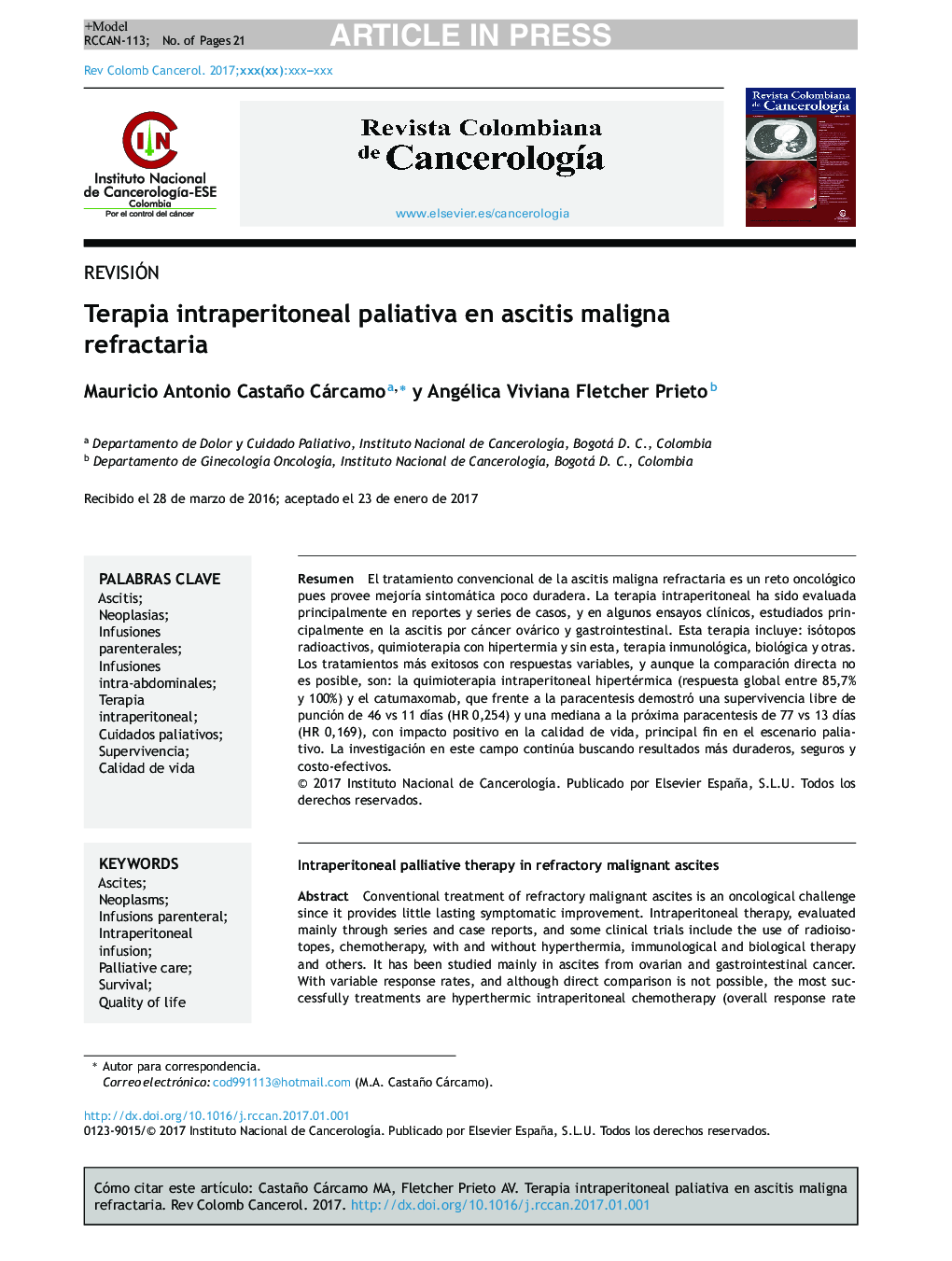| Article ID | Journal | Published Year | Pages | File Type |
|---|---|---|---|---|
| 8789417 | Revista Colombiana de Cancerología | 2018 | 21 Pages |
Abstract
Conventional treatment of refractory malignant ascites is an oncological challenge since it provides little lasting symptomatic improvement. Intraperitoneal therapy, evaluated mainly through series and case reports, and some clinical trials include the use of radioisotopes, chemotherapy, with and without hyperthermia, immunological and biological therapy and others. It has been studied mainly in ascites from ovarian and gastrointestinal cancer. With variable response rates, and although direct comparison is not possible, the most successfully treatments are hyperthermic intraperitoneal chemotherapy (overall response rate between 85.7% and 100%), and catumaxomab, which compared to paracentesis, demonstrated a puncture-free survival of 46 vs. 11 days (HR 0.254) and a median time to next paracentesis of 77 vs. 13 days (HR 0.169). This had a positive impact on quality of life, which is the main goal in the palliative setting. Research in this field continues looking for more lasting, safe, and cost-effective results.
Keywords
Related Topics
Health Sciences
Medicine and Dentistry
Oncology
Authors
Mauricio Antonio Castaño Cárcamo, Angélica Viviana Fletcher Prieto,
